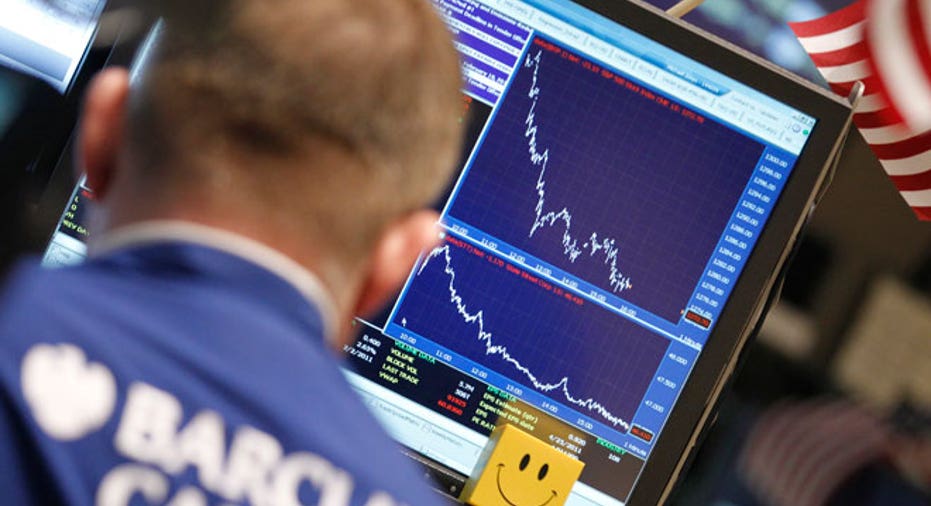Traders Brace for Possible Debt Fallout

Close out positions, tighten up stop-loss orders and get ready for Sunday night.
The Aug. 2 deadline for raising the U.S. debt ceiling is fast approaching and for many financial firms that means next week starts early.
Washington is cutting it close. The cut-off to resolve the deficit dispute is on Tuesday, when the United States will exhaust its ability to borrow money.
An agreement -- or lack of one -- this weekend will be felt in futures markets, which open for business on Sunday night.
Unusually for a head trader -- especially in the summer -- Scott Graham, head of government bond trading at BMO Capital Markets in Chicago, will be cutting his weekend short.
``I will come in Sunday night to see if there are any significant customer flows and to offset some of our risk,'' he said. ``Risk appetite has been cut across the board by most shops.''
If lawmakers fail to reach a deal the United States may be forced -- at least temporarily -- to default on its debt. Until now that possibility has been considered remote, and the fallout for markets is unknown -- but potentially stomach-churning.
Even with a deal, the United States could still see its gold-plated triple-A credit rating cut, another headache for investors worried how that will pay out in markets.
One head equity trader, whose wealth management firm employs around 17 traders globally, said long summer weekends were not an option in the current environment. And that applies especially to top staff, who are more accustomed to letting their weekends run over in the summer months.
``Senior members are on staff and will be on staff throughout this 'crisis,''' he said, asking not to be named as he was not authorized to talk about staffing levels. ``None of our traders are going to be on holiday on Monday and Tuesday.
EXTRA CAUTIOUS
Frank Lesh, futures broker at FuturePath Trading in Chicago, will be glued to his screen when markets reopen. As a futures trader, Lesh often starts his week on Sunday night but this time he is being extra cautious.
He plans to close his positions in stock index futures on Friday and tighten up risk management on other positions. He will be ready to jump on any big moves.
``As a trader I'm going to have buy stops above the market and sell stops below it,'' he said, referring to orders that kick in automatically in case of a move. ``I might stay in some commodities, but I don't know about stock indexes, you just don't know, the risk is greater than the reward.''
Judging by low volumes in the cash equity markets, many investors may just decide to stay away until the uncertainty is firmly in the rear view mirror. That could lead to another volatile market next week.
``People don't know what to do here,'' said Lesh. ``There's a lot of confusion about what position to be in. I think most people are going to err on the side of not having a position, because the risk is so great.''
That applies to Paul Mendelsohn, chief investment strategist at Windham Financial Services in Charlotte, Vermont, who says he has completely hedged his positions given how unprecedented the current situation is.
Like many money managers, Mendelsohn relies heavily on computer models to analyze the market. But now, he concedes, the volatility may mean those no longer work.
``We've never been here before,'' he said. ``I'm dealing with it as best as I can, but I have to realize my modeling is potentially thrown off and affected by the volatility.''
In the currency market, the largest and most global in the world, Asian traders will put in the hours on Monday morning as is customary, while their stateside counterparts enjoy the end of their weekends. The widely used electronic EBS market opens at 8 a.m. Sydney time, or 6 p.m. in New York.
``We have our Asian offices fully staffed. I would expect them to be fully staffed earlier just to be ready for any event on Sunday,'' said Steven Butler, director of foreign exchange trading at Scotia Capital in Toronto.
``The market is expecting the worst at this point, possibly a downgrade,'' he said. ``I think we will get an immediate U.S. dollar selloff. But again, so much has been priced in. We might see a bit of 'buy the rumor, sell the fact'.'' (Additional reporting by Wanfeng Zhou, Chuck Mikolajczak and Chris Reese; Editing by Kenneth Barry)



















